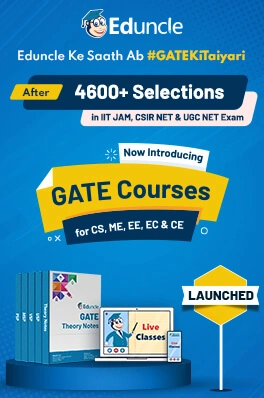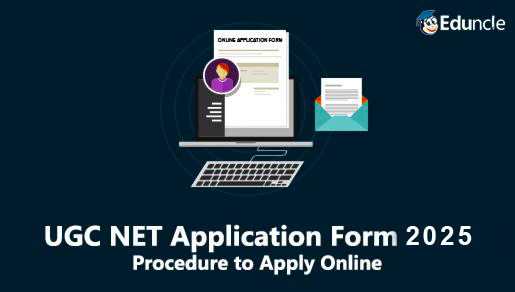The National Testing Agency (NTA) had included Research Aptitude in UGC NET Paper 1 to test the ability of aspirants in the education field. It covers almost 14-18 marks in the exam. Research involves the collection and analysis of data to increase the understanding of a topic or issue.
So, if you are preparing for the UGC NET Exam, then you should understand the concepts of UGC NET Research Aptitude.
Here are the complete details of Research Aptitude for UGC NET like notes, syllabus, important questions asked in the exam and more.
What is Research Aptitude Test?
Research Aptitude Test Syllabus
Research Aptitude Notes for UGC NET Paper 1
Types of Research for UGC NET Paper 1
UGC NET Research Aptitude Questions
UGC NET Paper 1 Research Aptitude Books
NTA NET Research Aptitude Preparation Tips
What is Research Aptitude for UGC NET? | Meaning
The word research is derived from the Latin word “to know”. It is the art of Scientific Investigation that indicates to search for something new i.e., new ideas, new conclusions, and new theory.
There are several definitions of Research Aptitude defined by the different professors:
According to Young PV, “Research is “the systematic method of discovering new facts or verifying old facts, their sequences, interrelationships, causal explanations, and the natural laws which govern them”.
According to Clifford Woody, “Research comprises defining and redefining the problems formulating a hypothesis or suggesting solutions, collecting, organizing, and evaluating data, making deductions and researching conclusions, and at last carefully testing the conclusions to determine whether they fit the hypothesis”.
According to Professor Lundberg, “A systematic method through which observed information and data are classified, generalized and verified is known as research”.
UGC NET Paper 1 Research Aptitude Notes PDF Free Download
UGC NET Research Aptitude Syllabus 2024
Research Aptitude is part of UGC NET Paper 1. It Includes 6 main topics and 12 subtopics in unit 1 like the meaning, its types, and characteristics, etc.
Below, you can check the complete Research Aptitude Test syllabus released by the official.
| Research Aptitude Syllabus for ugc net Paper 1 |
|
| Research |
Meaning, Types, and Characteristics, Positivism and Post Positivistic Approach to Research. |
| Methods of Research |
Experimental, Descriptive, Historical, Qualitative, and Quantitative methods. |
| Steps of Research |
11 Steps of Research. |
| Thesis and Article Writing |
Format and Styles of Referencing |
| Application of ICT in Research |
Effects of ICT on research, Pre-Data Analysis, Data Analysis, Post- Data Analysis |
| Research Ethics |
Elements, Features, Ethical Principles. |
Research Aptitude Notes for UGC NET Paper 1
Once you know the complete syllabus of Research Aptitude, it is essential to have quality notes along with a proper study plan.
At Eduncle, we are providing you with the UGC NET Research Aptitude notes, study material designed by the experts. You can also get the free PDF of UGC NET Previous Year Papers, syllabus, model papers, study plan, etc. from the table given below.
| Download Free UGC NET Research Aptitude Study Material for All Subjects [Trusted & Recommended by 4600+ Selected Students] |
| Updated Syllabus for All Subjects |
| Sample Theory Notes |
| Model Test Papers with Solution (Paper 1 & 2) |
| 5 Previous Exam Papers with Answer Keys |
| Complete Study Plan for Paper 1 |
| Paper Analysis by Eduncle Experts |
| Personalized Guidance by Subject Experts |
| Live Class (Free Demo Class) |
Also, you can use the free UGC NET Rank Predictor to check the expected All India percentile score.
Research Aptitude for UGC NET - Important Types of Research
There are several types of research covered in the NTA NET Paper 1 Exam. Here, we have provided some important types that are generally included in the Research Aptitude Syllabus for UGC NET Exam 2024.
Fundamental Research - It is pure and theoretical research based on the principle of generalization. Fundamental Research is directed towards finding information that has a broad base application.
Applied Research - This type of research discovers a solution for some specific problem such as identifying social, economic, or political trends. It may affect society or firms.
Descriptive Research - It is a qualitative study carried out to learn about people’s preferences. Descriptive Research makes a proper and logical description of a problem by collecting true, realistic information through surveys.
Analytical Research - This kind of research analyzes the facts or information which is already available using logic and reasoning. It is completely based on secondary data.
Conceptual Research - It does not involve conducting any practical experiments. Conceptual Research is generally used by philosophers and thinkers to develop new concepts or to interpret innovative ideas such as Newton’s Theory.
Get UGC NET Counselling from Experts
11 Steps of Research Aptitude for UGC NET
It is the procedure through which proper research is analyzed and maintained for presentations. There are 11 steps of Research included in the UGC NET Syllabus 2024. You can check them below:
Step 1: Formulation of the Research Problem:
The first step of a research journey is the formulation of a research problem or topic.
Researchers define the area of research by identifying the problem or research topic. They decide the area of interest of a particular subject or a study of the previous year’s research work.
Step 2: Developing Research Proposal:
After selecting the research topic or problem, the second step is to develop a plan of investigation for the Research Proposal.
Step 3: Development of Working Hypothesis:
After creating the research proposal, it is necessary to assume the situations and to do research studies which are known as hypotheses.
Step 4: Preparing Research Design:
It is the conceptual framework on which the research to be done. The main aim of research design is to take maximum output with minimum possible expenditure, time, and effort.
Step 5: Determine Sample Design:
A population is divided into small subgroups derived as a sample of the study. The sample design is a framework, or road map, that serves as the basis for the selection of a survey sample.
Step 6: Collection of Data:
The collection of data can be divided into two categories:
Primary Data: It can be collected through new experiments, surveys, group discussions, questionnaires, etc.
Secondary Data: This type of data has already been collected & passed by someone else through the statistical process.
Steps 7: Execution of The Research Project:
The execution or implementation of research is important as the Researcher observes that the project is executed systematically.
Step 8: Analysis of Data:
After collecting the data, it should be arranged properly and classified into two categories -
Irrelevant Data - It should be separated.
Relevant Data - It is coded into symbols so that it may be tabulated.
The tabulation is a part of a technical procedure that has classified data in the table form.
Step 9: Hypothesis - Testing:
After analyzing the data, the researcher can test the framed hypothesis in different ways like chi-square, F-Test, T-Test, etc. It will help you to know whether it can be accepted or rejected.
Steps 10: Interpretation and Recommendation:
The collected data is analyzed, summarized, linked with the research objective and explained by finding new theories, recommended new concepts and principles.
Steps 11: Report Writing and Presentation:
At last, scholars make a report and complete the research data in detail. It is presented in simple language and attractive style by using charts, graphs, illustrations wherever necessary and relevant.
Download Free Research Aptitude PDF and Start Learning Now
Research Aptitude for UGC NET Questions
Here we have provided some important Research Aptitude Questions PDF for UGC NET. These questions will help you for quick revision in your exam preparation.
Check the following questions that are asked in the exam:
UGC NET Paper 1 Research Aptitude Books
Below are some best Research Aptitude books suggested by the toppers. You can refer them for your exam preparation.
| UGC NET Paper 1 Research Aptitude Books |
Author Name |
| Trueman’s UGC NET/SET General Paper I |
M. Gagan, Sajit Kumar |
| NTA UGC NET / SET / JRF – Paper 1 |
Arihant Experts |
| CBSE UGC-NET: Teaching and Research Aptitude |
Dr. M.S. Ansari |
| A New Approach to Reasoning Verbal and Nonverbal |
B.S. Sijwali and Indu Sijwali |
Suggested Read -
UGC NET Research Aptitude Preparation Tips
What does it take to crack the NTA UGC NET exam? Well, it requires great dedication and concentration with a proper study plan, hard work and smart preparation.
Eduncle provides quality study material and the best guidance to help you in your UGC NET Exam Preparation.
Here are some tips and tricks of Research Aptitude for the UGC NET Exam. These will help you score better in the exam.
Know the complete syllabus and make a study plan by covering the following important topics:
Meaning and characteristics of Research
Types of Research.
Positivism and Post Positivistic Approach to Research
Methods of Research
Steps of Research
Thesis and Article Writing
Application of ICT in Research
Understand the basic concepts of research so that you can have in-depth knowledge of it.
Learn all the important definitions during the exam day.
Solve previous year question papers and UGC NET Mock Test Papers to know your strong and weak areas.
Avoid cramming for better learning practices to focus more on understanding the actual meanings and methods.
We have covered all the important topics of Research Aptitude for UGC NET. We hope that this information will help you to boost your exam preparation.
If you have any doubts and queries regarding the NTA NET Research Aptitude, then you can ask us through the comment box below. We will solve your doubts as soon as possible.
You can also join India’s No.1 Learning Community for the NET Exam, where you will get doubt solutions for all your exam-related queries with the help of experts from all over India. To join the community, you can download the Eduncle App now.
Thank you!























